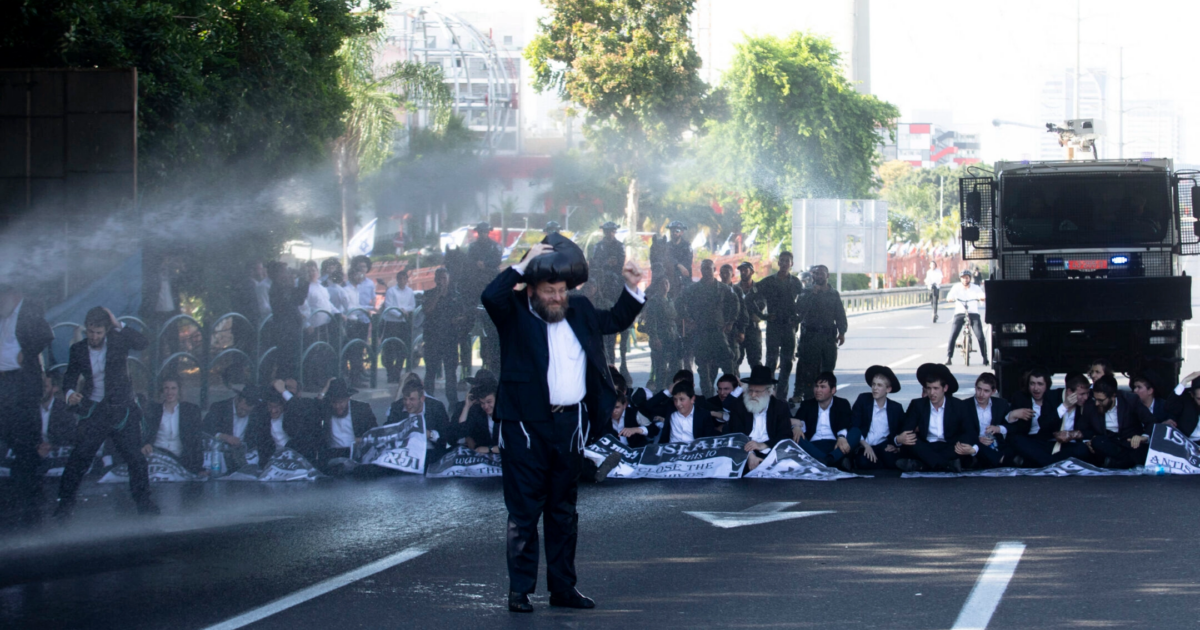Israel
Orthodox Jews rubbed raw by enforced enlistment

Israeli Defence Minister Yoav Gallant confirmed on Tuesday, 9 July, that the military would urgently embark on drafting the ultra-Orthodox. The decision to bolster the Israel Defense Forces (IDF) ranks over coming months with ultra-Orthodox was finalised in a meeting with IDF Chief of Staff Herzi Halevi and endorsed by Gallant.
The statement came just nine days after tens of thousands of ultra-Orthodox protesters crammed the streets of Jerusalem in anger at the Supreme Court ruling of mandatory military conscription.
Gallant’s approval marks a historical shift that reflects the necessity for defence. Young haredi men now have a legal obligation to join their secular peers and serve in the Israeli army. In navigating the intricate social complexities, the IDF ensures that “haredi soldiers can preserve their lifestyle amidst their service”.
The haredi community is close to a million-strong, making up 12% of the population. More than 60 000 of these young men are registered as yeshiva students, which not only granted them exemption from military service, but also made them eligible for significant government benefits.
Draft exemption has been a long-standing point of contention that has caused massive political and societal friction. While the strained IDF faces ongoing war in Gaza and a possible second war with Hezbollah in Lebanon, hundreds of thousands of reservists are being called up for duty, bringing this issue to a head.
“Israel’s IDF soldiers are the greatest heroes of the Jewish people,” says Rabbi Yehuda Stern of Sydenham Shul in Johannesburg. He knows many young men who serve as reservists as part of the Hesder Yeshiva programme.
Hesder is “A five-year programme that includes military service, where you study for 18 months before and after an 18-month army service,” Stern says.
Due to the mass number of students on this programme, yeshiva leadership together with the IDF have managed to put higher standards of halacha in place in the army for these students.
“However, a five-year commitment to the programme isn’t something everyone is keen to sign up for,” says Stern.
“Catering to the religious community has always been – and still is – a challenge for the IDF,” he says. “Yeshiva students require a higher level of standard with regards to kashrus, davening times, as well as the separation of genders, both in bases and at posts. This isn’t something that the army is always equipped for.”
Since the establishment of Israel in 1948, the government recognised and even subsidised yeshiva and Torah learning institutions. According to Stern, “These students have been given exemptions from serving in the army, as it’s common belief that Torah, too, brings protection to Israel and to the Jewish people worldwide. Both IDF soldiers on the frontline and Torah students are integral for the continued success of the country and its safety.
“Israel is a miraculous country,” Stern says, “that has thrived in spite of the most compromising and challenging circumstances due to both physical and spiritual protection, ensuring its continued safety.
“The Jewish people have always been diverse; this is what makes us unique. These are challenging times for our people, but we must remind ourselves that Jewish unity is the greatest strength we have.”
He believes the only way for the country to thrive is the government’s continued recognition of the different communities living there.
Says Rabbi Dovid Hazdan of Great Park Shul, “This historical issue runs deep in the hearts and minds of the people of Israel. But after decades of debate, it’s sad to be divided amidst a war when everyone should be pulling together.”
Unfortunately, many ultra-Orthodox students take advantage of their military leniency or deferment, using it to get out of military service altogether.
“Many in the haredi community who balance study of Torah with army service make it more palatable to society that they’re using their time for study along with military service, or at least community service,” he says.
“Every person has a responsibility to defend Israel, and no Israeli should be walking away from that responsibility completely,” says Hazdan. “The concern now is the impact of this issue on the morale of the people as a whole.”
A rabbi working at a yeshiva in Israel, who prefers to remain anonymous, has many students serving in the army. His children, too, are serving in the IDF, so it hits home on a personal level.
“If I had a magic wand that would make every haredi Jew serve in the army, I’m not sure I’d wave it,” he says.
“As someone who deeply believes in Torah learning, I’m torn myself. I live in a world that’s very nationalistic and religiously Zionist, and in this emotionally charged time, absolutist statements can become divisive and painful.”
It’s tough to try to put such complex issues into perspective, he says. He aims to highlight the subtleties in a balanced way, without clobbering people with ideological stances in a way that’s polarising or sectarian.
“Feelings are raw for thousands of Israelis,” he says. Indeed, we’re living through painful and trying times.